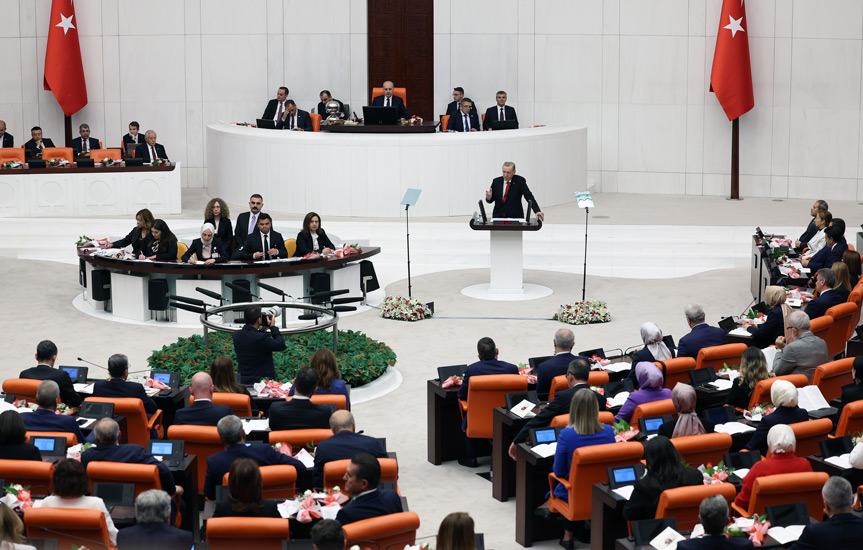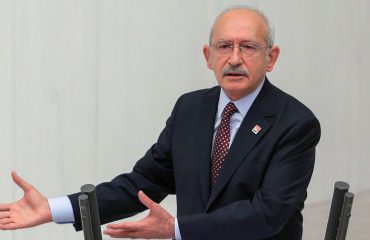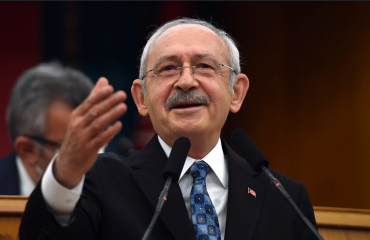

In President Erdoğan’s 19-page speech for the opening of the new legislative year, the number of pages he devoted to issues shows his political priorities.
President Tayyip Erdoğan’s speech opening the new legislative year on October 1 was overshadowed by the terrorist attack on the Interior Ministry a few hours earlier, a few hundred meters away from the Parliament building. Erdoğan had to add the sentence “This morning’s action is the last efforts of terrorism” to the sentence “We have largely solved the issue of separatist terrorism within our borders” in the text of his speech.
At the beginning of his speech, Erdoğan spoke at length about the War of Independence 100 years ago, quoting Mustafa Kemal Atatürk’s speech at the declaration of the Republic. In that respect, he fulfilled the bare minimum. But as we are about to leave behind the 100th anniversary of the Republic, one would have expected the speech of the President of Türkiye to be more conceptual, more oriented toward the long-term future. Instead, he opted for messages about the immediate future and current politics.
Erdoğan’s speech was structured around three main messages: a new constitution, the fight against terrorism, and relations with the European Union.
Erdoğan’s priorities
In fact, if we analyze the text of Erdoğan’s opening speech of the new legislative term of the Grand National Assembly of Türkiye (TBMM), which he delivered on May 28 after his election as President for the third time and on the verge of celebrating the 100th anniversary of the Republic, the picture that emerges shows the difference between the reality and Erdoğan’s priorities.
In the 19-page text, apart from the mentions, the weight given to the topics in the speech shows that 5 pages are devoted to the reasons why the rewriting of the Constitution is necessary and the call for contributions from “all parties”, 3 pages to the relations with the European Union and its criticism, 2 pages to the fight against terrorism and 1 page to the efforts to get out of the economic crisis (apart from repairing the earthquake damages).
However, getting out of the economic crisis is the most important problem in Türkiye today. The cost of living, which Erdoğan also had to mention, is also a public issue. For the second century of the Republic to be the “Century of Türkiye” as the President calls it, the economy must be strengthened and welfare and income distribution justice must be ensured.
The priorities of the people and the country do not include a new Constitution, but they do include, for example, that the executive power, headed by the President, at least abides by the existing Constitution and laws.
Challenging the EU
For example, there is Article 90 of the Constitution, which was included during the AK Party era, which states that the decisions of the European Court of Human Rights (ECHR) are decisive in cases of conflict. We know that this does not apply at least in Osman Kavala’s case. We have the example of Selahattin Demirtaş, where the decisions of the Turkish Constitutional Court are also not implemented.
I am not going to ignore the EU’s injustices and double standards against Türkiye (from the Cyprus problem to the open-ended membership negotiations to the fight against terrorism). As for the threats to expel Türkiye from the Council of Europe, of which Türkiye is a founding member, for violating ECHR judgments, I see them as empty; this would harm the Council of Europe more.
However, it is not right that the Turkish President sees the main areas of contradiction with the EU as democratization and human rights, and reduces this to the visa issue.
Erdoğan’s quotes like “we can no longer tolerate impositions”, “if they don’t correct their mistakes (…) they will completely lose the right to expect anything from us politically, socially, economically and in terms of military”, and “if they have any intention of terminating the full membership process, it is up to them” were carefully taken down by the European diplomats watching his speech.
On the way out, all of them had mixed expressions.
Strategic priorities
Türkiye’s strategic priorities include strengthening its economy and improving the welfare of its people, addressing regional security challenges, including the fight against terrorism, and forging stronger ties with the EU for both political and economic development.
But the writing of a new constitution, which Erdoğan sees as the most important challenge, is absent.
As for the “civilian constitution that is not under military tutelage”. For God’s sake, wasn’t this the slogan of the 2017 Constitution, which was adopted with the support of the MHP? Or the 2010 constitutional amendment that Fethullah Gülen -now grave public enemy- supported with a statement that would make horror movies: “If necessary, raise your dead from the grave and make them vote”? Does Erdoğan now consider the constitution of the 2017 Presidential Government System, drafted entirely under his initiative and control, to have been written under military tutelage?
The first four articles of the Constitution adopted in 1982 after the September 12, 1980 coup d’état come to mind, with the clause “cannot be proposed to be amended”. It is especially the word “secular” in Article 2 that disturbs the increasingly vocal political Islamists.
What is the purpose?
Yet MHP leader Devlet Bahçeli is in favor of preserving the first four articles, including the secularism clause, and Erdoğan has recently endorsed it.
Or is Erdoğan’s aim to concentrate all powers in the presidency and thus avoid the 50+1 percent needed to be elected, which was Bahçeli’s condition for support in 2017, and thus to be dependent on the MHP for power?

